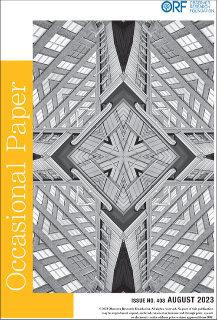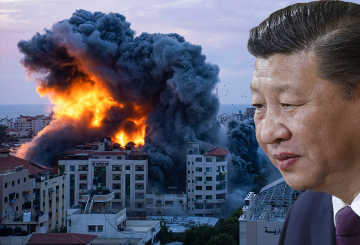If the dreams of this Union Budget have to become a reality, two important aspects need to be addressed -- transparency and efficiency, says former Revenue Secretary Sivaraman.

From being a mere 'financial statement', the Union Budget has gained greater significance in the post-liberalisation Indian scenario. Not only industry but also the aam admia waits the budget with immense hope and anxiety. It has also attained great political significance. Budget-2011 was presented in the backdrop of burgeoning inflation. The Union Finance Minister, Mr. Pranab Mukherjee, faced the tough task of tackling inflation while maintaining growth momentum.
The Weekly Interaction of Observer Research Foundation (Chennai Chapter) on Saturday, March 5, 2011, focussed on the Union Budget that was presented earlier in the week, the traditional last working day of February. Initiating the discussion, Mr. M R Sivaraman, IAS (Retd), former Revenue Secretary, threw light on the hidden economics of the budget which the media could not bring to light.
The discussion focussed on the following aspects: Can the policies delineated in the budget bring down fiscal deficit as mandated by the FRBM Act of 2003? Is the budget ethical? Is it growth-oriented? Inflation, fiscal policy and the much-debated problem of black money were also examined in detail.
Mr. Sivaraman was of the view that the projected reduction in the fiscal deficit from 5.5 per cent in 2010-11 to 5.1 per cent in 2011-12 represented a temporary phenomenon and that the trend need not continue. The present trend was supported by the massive revenues amounting to over Rs 1 lakh crore rupees from auctioning of 3-G spectrum, and also from disinvestment. Much was left unaccounted in the current budget as it also showed reduction in social sector spending. He felt that the revenue was tailored to suit expenditure.
Explaining his argument, Mr. Sivaraman pointed out that the Food Security Act, when brought forth as promised in the budget, required much government spending. The Centre also needed to pay the DA instalments to Government employees, requiring further spending. Besides, the 13th Finance Commission has advised the Government that the money from disinvestment should go to the Consolidated Fund of India, and not to public account, thus putting further constraints on funds availability. Taking into account all these realities, it was argued that around Rs. 15,000 crores of expenditure was compressed in the annual financial statement. This meant that the projection of fiscal deficit was also compressed.
Lauding the Government's attempt to provide food security to the poor through a new legislation, Mr. Sivaraman expressed concern over its impact on inflation since large- scale procurement of rice and wheat required for the purpose would withdraw considerable quantities from the open market, and thus pushing up the prices. He also pointed towards the need for an increase in agricultural productivity, which was much lower than the international average. He appreciated the Government's attempts to increase productivity of pulses as it was an important constituent of common man's food basket.
Mr. Sivaraman was doubtful of the benefits of raising the limits of FII. He feared that it would help those who stashed away money in foreign banks to make it legal. The increased flow of 'high-powered money' would also lead to credit-creation, leading to a further rise in inflation. This would neutralise the Reserve Bank's attempts to tackle inflation. He also pointed out that among the developed and developing countries, India was one among the few with such a high rate of inflation.
Mr. Sivaraman felt that the budget was finely balanced as it gave adequate importance to all sectors, including rural, agricultural and infrastructural sectors. He also welcomed the Government's decision to index the wage rates notified under MNREGA to the Consumer Price Index for Agricultural Labour as it would result in significant enhancement of wages for the beneficiaries across the country. Stressing the need for significant growth in the manufacturing sector, he pointed out that labour inflexibility was a major problem hindering the growth of this sector. This has considerably affected the growth prospects of some States, including Tamil Nadu, as manufacturers were not ready to expand their operations in these States and were shifting the existing units to other States and even countries where they felt the atmosphere was conducive to development of their projects. It was high time the Government(s) announced some sectors trade union-free, especially those that required skilled workers.
Terming the budget growth-oriented, Mr. Sivaraman pointed out two important aspects that need to be addressed if the dreams of this Union Budget have to become a reality -- transparency and efficiency. Illustrating the example of the Indian Oil Corporation (IOC), which signed an agreement with the Transparency International providing it access to the former's tenders and deals, he suggested that this was a model worth emulating. Many of the policies failed to give the desired effect as they were strangled by red-tapism. The administrative machinery needs to be reformed if the policies have to be effectively implemented. Unnecessary fragmentation of the system along with the absence of proper division of labours affected the efficiency of the public servants, placing avoidable hurdles on the path of development.
(This report was prepared by Tresa Peter, MPhil student, Stella Maris College, Chennai)
The views expressed above belong to the author(s). ORF research and analyses now available on Telegram! Click here to access our curated content — blogs, longforms and interviews.




 PREV
PREV

